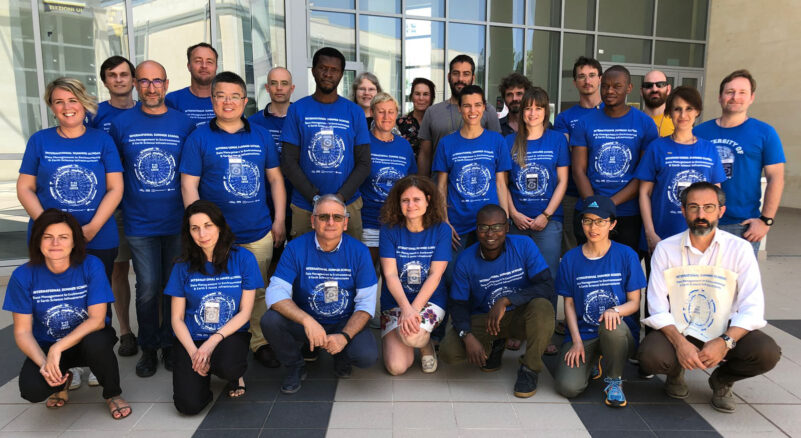
Between the 9 –13 July, around 40 academics, researchers, PhD students, data managers and research infrastructure developers coming from all across Europe gathered in Lecce, to join the International Summer School on “Data Management in Environmental and Earth Science Infrastructures: theory and practice”, organised by the H2020 ENVRIplus and LifeWatch Service Centre.
In recent years, one of the major challenges in environmental and earth science has been managing and using continuously growing volumes of data collected across multiple disciplines, and educating both scientists and developers on how best to do so. Many different standards, approaches, and tools have now been developed to support the research data lifecycle, which need to be examined and, where appropriate, adopted by a wider community. In particular, modern semantic technologies provide a promising way to properly describe and interrelate different data sources in ways that reduce barriers to data discovery, integration, and exchange among environmental and ecological resources and the researchers who use them.
To address these challenges, ENVRIplus and the LifeWatch Service Centre organised a five-day summer school providing an unique insight into the contemporary debate on data management in the environmental and earth sciences. The programme, combining theory with hands-on sessions, explored themes as diverse as reference modelling and research metadata semantics, data processing and e-infrastructure, identification and citation, cataloguing and provenance, and closed presenting two use cases on data management in the context of LifeWatch Italy.
“Both ENVRIplus and the LifeWatch Service Centre have been working on these topics and have already organised dedicated workshops and training sessions in recent years.” say the organisers, Nicola Fiore (LifeWatch Service Centre) and Zhiming Zhao (ENVRIplus). “This year we decided to move forward and propose a full International Summer School; its participants were enthusiastic about the programme and so we are already at work on a 2019 edition”.